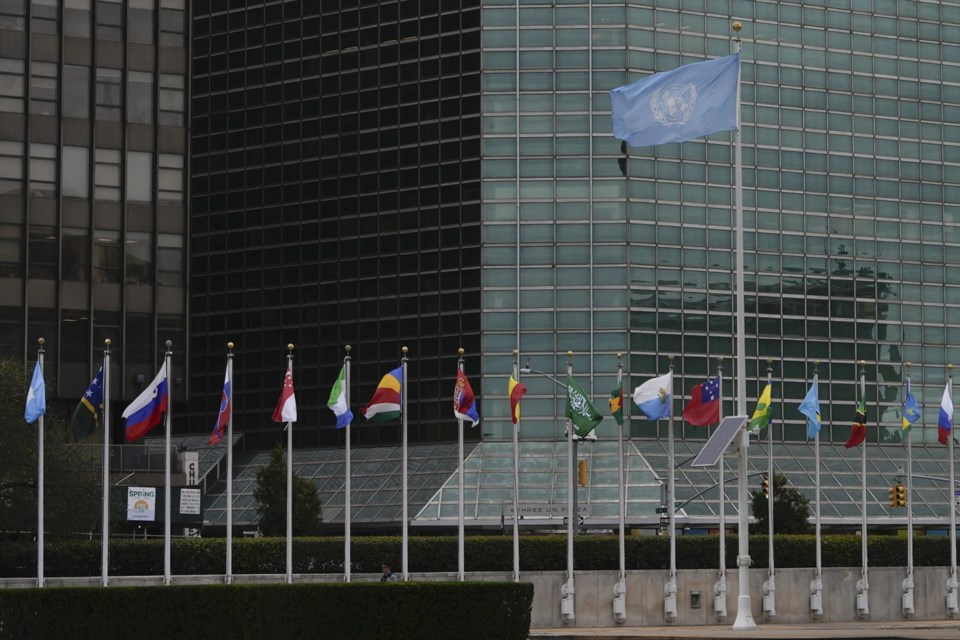UNITED NATIONS (AP) ŌĆö Dr. Felipe Paullier is quick to say he doesn't speak for the world's roughly 2 billion tweens, teens and young adults. But as the United Nations' first assistant secretary-general for youth affairs, he's tasked with advocating for young people and their concerns to be incorporated into the organization's work ŌĆö a goal shared by by the international community. Paullier, a pediatrician and former director general of Uruguay's National Youth Institute, started in in the job in December. He sat down with The Associated Press on the sidelines of the U.N. General Assembly this week to talk about his role, the U.N.'s new ŌĆ£ ,ŌĆØ what it means for young people ŌĆö and whether their elders really mean it about including them.
Here are excerpts from the interview, edited for length and clarity.
___
AP: Given the subject, let's start with this: How old are you?
PAULLIER: I'm 33. When I started, I was 32. I'm getting old.
AP: Your role is very new.
PAULLIER: You know, the U.N. has been an organization championing the youth agenda for many, many decades. But in terms of really putting this at the global level and as a priority, I think this is a bit more recent. ...My role is not about representing the youth voices ŌĆö because young people are too diverse to be represented by one person. But at the same time, I think the office is a testament to the recognition of youth at the global level. I think thatŌĆÖs our role.
AP: What did the recent U.N. Summit of the Future and ŌĆ£Pact for the FutureŌĆØ add to the picture?
PAULLIER: I think there are two concrete commitment outcomes of this summit. Now, itŌĆÖs always about these commitments being put into actions. But one is about governments committing to implement, at the national level, youth engagement mechanisms. And I think thatŌĆÖs a very important and very crucial point. And the second one is, at the global level, this idea of having a process to have common principles about meaningful youth participation. Because this is a relatively new concept. Ten or 15 years ago, you know, young people were just seen as beneficiaries of policies. And now I think the summit, the establishment of the office, there are many things changing that are showing institutions, decision-makers, are saying, "OK, we need to engage with them as partners."
AP: At a leadup event for the summit, one young activist was quite frank about saying that itŌĆÖs not just a matter of being invited to attend or speak at events ŌĆö it's a matter of actually being heard and seeing something come out of it. How do you encourage young people to take the U.N. at its word that it wants to include them in a way thatŌĆÖs meaningful?
PAULLIER: You know, I think this is a challenge of every traditional institution. And I'm saying ŌĆ£traditionallyŌĆØ because our institutions were established in a different world. ItŌĆÖs true that in the last 10 or 15 years, the world has changed dramatically. Technology has brought to people a lot of power, and this is transforming the accountability systems, the way that people can organize themselves, express themselves, mobilize. That's something very positive. But at the same time, institutions need to align to these transformations.... So I think that the summit is essentially the recognition that this needs to be transformed.
As an office, our role is that we push for changes for happen. And let's not see this only in the negative way of thinking. I tend to believe that these commitments from governments are a testament that they have willingness to really advance in this direction.
AP: Do you feel like the goals of young people who want this change are realistic?
PAULLIER: Completely.
___
See more of APŌĆÖs coverage of the U.N. General Assembly at
Jennifer Peltz, The Associated Press



